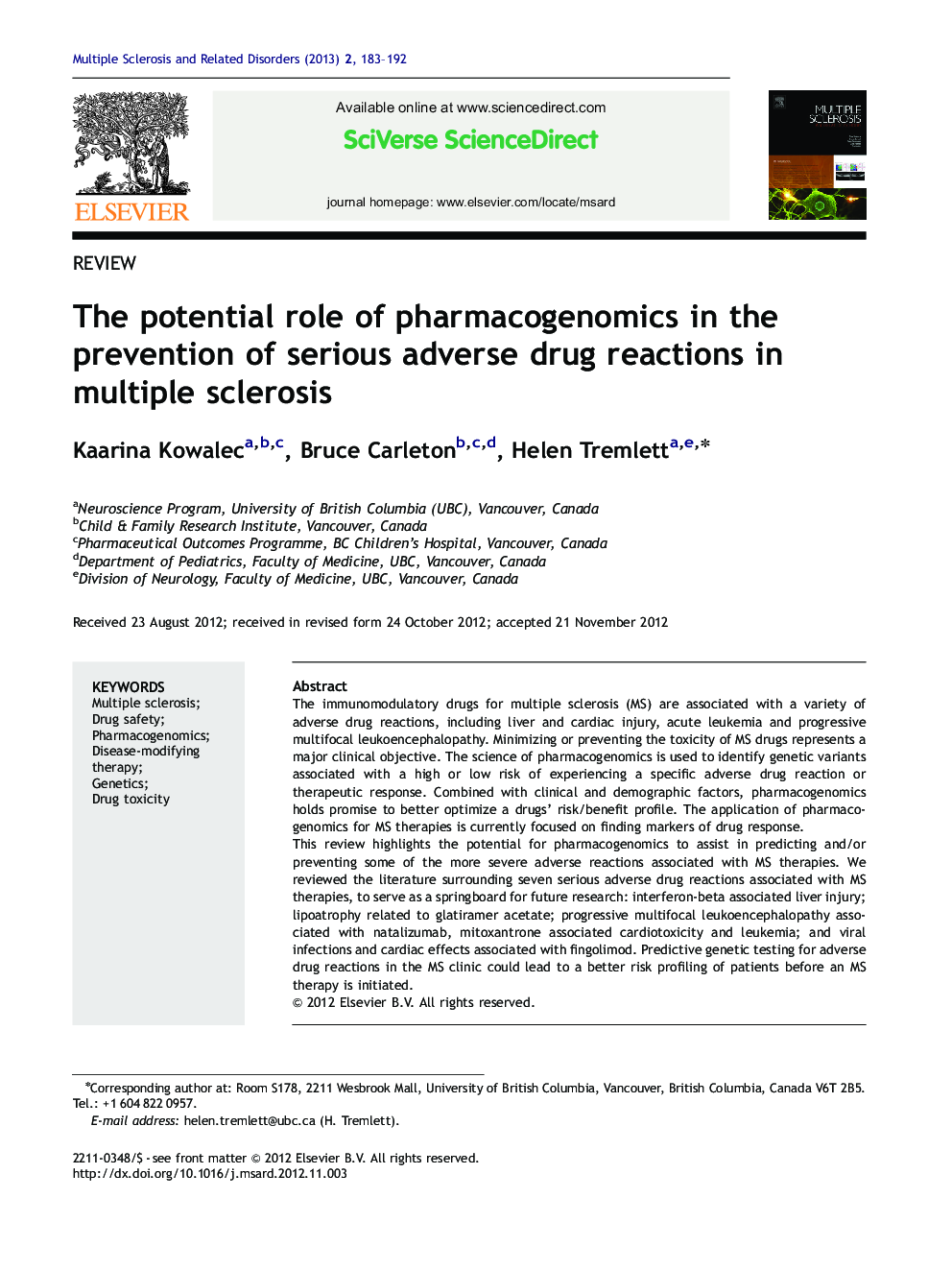| کد مقاله | کد نشریه | سال انتشار | مقاله انگلیسی | نسخه تمام متن |
|---|---|---|---|---|
| 2823911 | 1161451 | 2013 | 10 صفحه PDF | دانلود رایگان |

The immunomodulatory drugs for multiple sclerosis (MS) are associated with a variety of adverse drug reactions, including liver and cardiac injury, acute leukemia and progressive multifocal leukoencephalopathy. Minimizing or preventing the toxicity of MS drugs represents a major clinical objective. The science of pharmacogenomics is used to identify genetic variants associated with a high or low risk of experiencing a specific adverse drug reaction or therapeutic response. Combined with clinical and demographic factors, pharmacogenomics holds promise to better optimize a drugs’ risk/benefit profile. The application of pharmacogenomics for MS therapies is currently focused on finding markers of drug response.This review highlights the potential for pharmacogenomics to assist in predicting and/or preventing some of the more severe adverse reactions associated with MS therapies. We reviewed the literature surrounding seven serious adverse drug reactions associated with MS therapies, to serve as a springboard for future research: interferon-beta associated liver injury; lipoatrophy related to glatiramer acetate; progressive multifocal leukoencephalopathy associated with natalizumab, mitoxantrone associated cardiotoxicity and leukemia; and viral infections and cardiac effects associated with fingolimod. Predictive genetic testing for adverse drug reactions in the MS clinic could lead to a better risk profiling of patients before an MS therapy is initiated.
► MS immunomodulatory drugs are associated with a variety of adverse reactions.
► Pharmacogenomics and clinical factors can optimize a drugs’ benefit/risk profile.
► The application of pharmacogenomics to MS is currently focused on drug response.
► We review target adverse drug reactions in MS for future research purposes.
Journal: Multiple Sclerosis and Related Disorders - Volume 2, Issue 3, July 2013, Pages 183–192